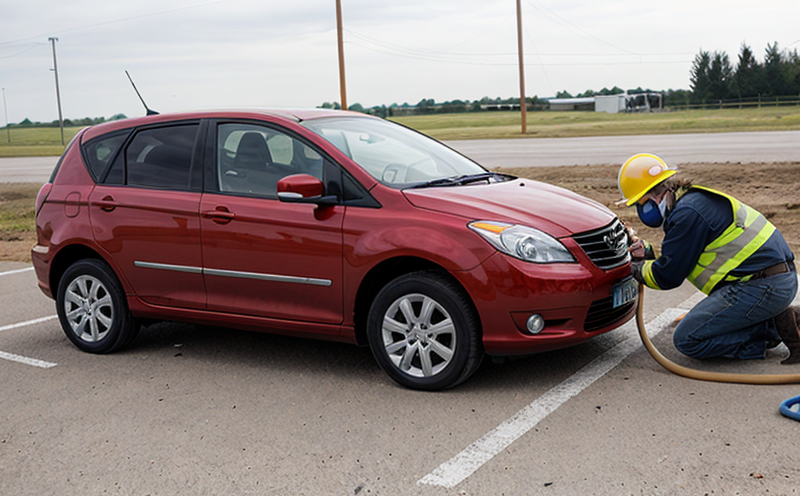ANSI B11 19 Performance and Functional Safety Testing for Machinery
The ANSI/ASME B11.19 standard is a comprehensive guide that ensures the functional safety of machinery, particularly in industries where human safety is paramount. This service focuses on the rigorous testing procedures outlined within this standard to ensure compliance with international safety regulations and best practices.
Functional safety encompasses multiple aspects including fault tolerance, diagnostic coverage, and failure mode analysis. Our team specializes in performing these tests using advanced instrumentation and software tools that simulate real-world operating conditions to identify potential hazards early on. This proactive approach not only enhances product reliability but also ensures adherence to strict regulatory requirements.
Functional safety testing under ANSI B11.19 involves multiple stages starting from hazard identification through to final acceptance criteria assessment. Each stage is critical for ensuring that the machinery meets all necessary standards and performs safely across its intended applications. Our expertise lies in applying these standards effectively, thereby minimizing risks associated with mechanical failures or malfunctions.
For instance, during the testing process, we employ a variety of methods such as vibration analysis, temperature monitoring, and stress simulation to evaluate how well different components behave under various stresses and conditions. These tests help us understand not only the current state but also predict future performance trends based on historical data.
The importance of functional safety cannot be overstated given that machinery failures can lead to severe accidents causing injuries or fatalities. By adhering strictly to ANSI B11.19 guidelines, we provide assurance that our clients’ products meet high standards of safety and reliability. This commitment translates into enhanced trust among stakeholders, improved brand reputation, and ultimately contributes towards sustainable business growth.
- Identification of potential hazards
- Evaluation of diagnostic coverage
- Assessment of fault tolerance levels
- Detailed stress simulation tests
Scope and Methodology
The scope of ANSI B11.19 Performance and Functional Safety Testing for Machinery is broad, covering various types of machinery used in manufacturing processes across different industries. This includes but is not limited to conveyors, presses, robotics systems, and packaging equipment among others.
Our methodology follows a structured approach comprising several key steps: initial assessment, hazard analysis, design review, implementation verification, and continuous monitoring. At each step, we utilize state-of-the-art technologies and methodologies tailored specifically for the type of machinery being tested.
- Initial Assessment
- Hazard Analysis
- Design Review
- Implementation Verification
- Continuous Monitoring
The initial assessment phase involves gathering information about the machinery’s intended use and identifying any potential risks. This data forms the basis for subsequent phases where more detailed analyses are conducted.
International Acceptance and Recognition
- The ANSI/ASME B11.19 standard is widely recognized globally due to its rigorous approach to ensuring functional safety in machinery.
- Countries like the United States, Canada, Europe (including Germany, France, Italy), Japan, South Korea, and Australia have adopted this standard for various applications ranging from manufacturing facilities to hazardous environments.
Compliance with ANSI B11.19 is not only beneficial for local markets but also opens up opportunities for exporting products internationally since many countries accept compliance as equivalent to their own national standards.
Use Cases and Application Examples
- In manufacturing plants, ANSI B11.19 ensures that conveyors operate safely even under extreme conditions like high temperatures or heavy loads.
- Robotic systems benefit from this standard as it helps prevent accidents caused by unexpected movements or failures during critical operations.
One notable application area is the automotive industry where safety features in vehicles are tested rigorously before being incorporated into production lines. By adhering to ANSI B11.19, manufacturers can demonstrate their commitment to providing safe products that meet global standards of quality and reliability.





